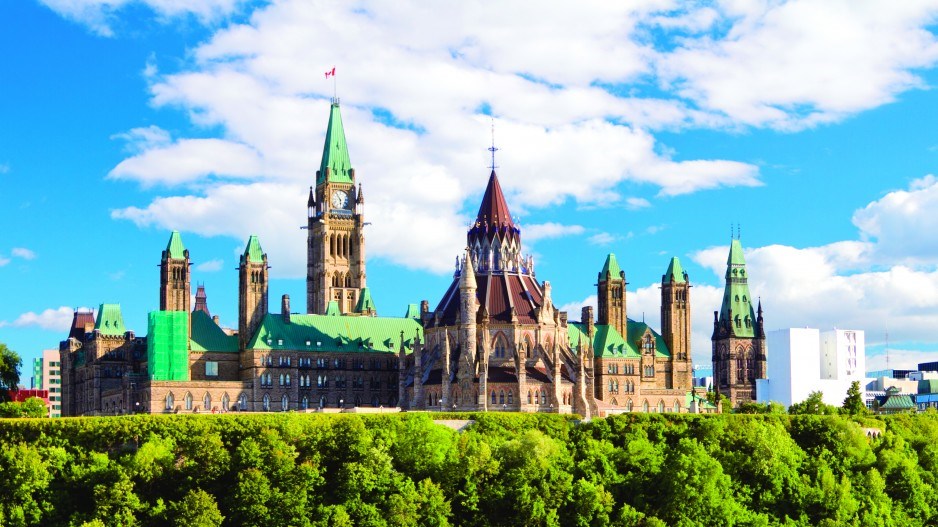More than 100 days have passed since Canadians were compelled to stay at home in order to deal with the COVID-19 pandemic. We have seen countless televised messages from elected politicians, as well as heated discussions about the proper use of masks. As we enter a very different summer, Research Co. and Glacier Media tracked the views of Canadians on political and behavioural matters.
The one consistent finding throughout the pandemic has been the high level of satisfaction that Canadians express toward the federal government. In our latest survey, 70% of Canadians are happy with how Ottawa has dealt with the COVID-19 outbreak, practically unchanged since we last asked in May (69%).
The rating for provincial governments and municipal governments improved as more Canadians were able to leave the isolation pod. Three in four Canadians (75%, up 11 points since May) are satisfied with their provincial administration, and seven in 10 (70%) feel the same way about their local government.
The big jump for provincial governments was not uniform across the country. In Atlantic Canada and British Columbia, satisfaction reaches 86% and 83%, with positive perceptions increasing by 19 points and 14 points, respectively.
Two other areas experienced double digit rises in satisfaction: Saskatchewan and Manitoba (78%, up 19 points) and Ontario (76%, up 23 points). The lowest ratings are observed in Quebec (69%, up three points) and Alberta (62%, up six points). Quebec had the highest level of satisfaction when we started asking this question in March; Alberta has consistently been at the bottom.
On the behavioural side of things, there are some remarkable changes in the way Canadians are approaching the pandemic. Time and reassurance have made many residents feel safer about take-out and delivery. In April, 40% of Canadians said they were not ordering food because they feared infection. The proportion has dropped to 23%, in what will surely be welcome news to an industry that has been greatly affected by the pandemic.
Three in 10 Canadians admit to overeating, unchanged since April. There is an increase in consumption of alcohol at home (18%, up five points) and a steadier curve on losing our tempers more often (16%, down two points).
Throughout the pandemic, the gender gap on some questions related to safe practices has been staggering. This time, it is evident on two questions. Fewer Canadians (40%, down seven points) are cleaning the groceries they buy to prevent infection. While only 36% of men are sanitizing the provisions they buy, the proportion jumps to 44% among women.
Still, the biggest behavioural change is on our faces. Back in April, only 14% of Canadians said they wore a protective mask every time they went out. This time, practically half of Canadians (48%) are not leaving home without them. Regionally, Ontarians are leading the way in wearing masks (63%), followed by Albertans at 51%. The proportion is slightly lower in Quebec and British Columbia (each at 48%).
Again, women are being more meticulous. Most female respondents (57%) say they are wearing masks outside, while only 39% of male respondents report the same behaviour. There is also a generational gap, with more than half of Canadians aged 18 to 34 (55%) always bringing their masks, compared with 46% for those aged 35 to 54 and 44% among those aged 55 and over.
Mask or no mask, Canadians appear resigned to staying close to home and avoiding big crowds. Only 11% of Canadians expect to be able to travel abroad before the end of September, while a similar proportion (12%) believe they will be able to go to a live sporting event. There is slightly more hope about attending or hosting a large social gathering at some point before Labour Day (21%).
More than a third of Canadians think the calendar will hit December before they take a trip abroad (39%), witness a live sporting event (35%) or go to a large party (also 35%). In a sign of the difficulty of issuing any kind of forecast during the pandemic, the proportion of undecided respondents is high on all three options.
Even the seemingly simple task of shaking the hand of a person who is not at our home appears distant, with 20% of Canadians expecting to do this before September, and 29% foreseeing it perhaps as a Christmas miracle. In addition, three in four Canadians (75%) say they will “definitely” or “probably” take a vaccine against COVID-19 is one ultimately becomes available, up two points since April.
Even if the future seems bleak, Canadians are more optimistic now. In March, only 22% were willing to say that the worst of the COVID-19 pandemic was “behind us.” The proportion barely moved to 24% in May, but reached 49% at the end of June. Oddly enough, Quebecers (57%) and Ontarians (49%) are more enthusiastic about the corner being turned than those in two large provinces that have fewer COVID-19 cases: Alberta (44%) and British Columbia (39%). •
Mario Canseco is the president of Research Co.
Results are based on an online study conducted from June 26 to June 28, 2020, among 1,000 adults in Canada. The data has been statistically weighted according to Canadian census figures for age, gender and region in Canada. The margin of error – which measures sample variability – is plus or minus 3.1 percentage points, 19 times out of 20..




